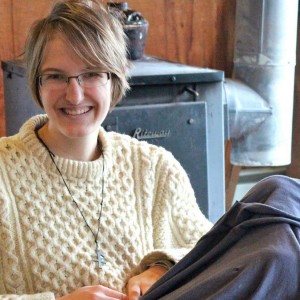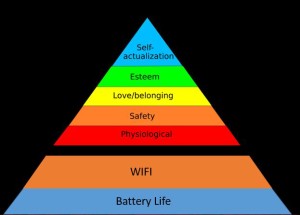
© 2011 wplynn, Flickr | CC-BY-ND | via Wylio
(This is part of a series written by Millennials who have either left or stuck with the church. If you are a Millennial and would like to submit your work for publication, you will earn $100. Here is the link. To read more stories about Millennials search Millennial Exodus. If you would like to fund our research among emerging adults, click here.)
Here is Bethany’s story.
Confession time: I am hungry. I don’t mean for snacks; I mean spiritually, socially, meaningfully, hungry. And the church hasn’t exactly filled me up.
Not that I haven’t put in my part. I’ve attended churches across the spectrum, from the one with a steeple to the one that met in a yoga studio.
 I’ve heard great sermons and sung great music, but sermons and music are about as filling to a hungry soul as watching a cooking show is to a hungry body.
I’ve heard great sermons and sung great music, but sermons and music are about as filling to a hungry soul as watching a cooking show is to a hungry body.
I long for community. I desire in the deepest way to know that my life means something, and that I’m not alone, and that God is real. I am a broken person in a broken world, and I want to be healed.
I have tasted these things in church, one bite at a time. There’s the pastor who invited me to lead worship and join the church council, though I was decades younger than the average member. There’s the church camp where I learned that every person–even me–is called by God to love and serve. There’s the nourishment of communion, and the people who look in my eyes every week and tell me that Christ’s body was broken for me.
Maybe I’m stubborn, but I’m refusing to give up on the church. I’m so hungry for a church that will feed my people, but these nibbles of grace are enough to keep me coming back. I’m here to set the table for God’s feast to come, where we will all be fed. I hope to see you there.
“Blessed are those who hunger and thirst for righteousness, for they shall be filled.” –Matthew 5:6
 Bethany Ringdal is a student at Luther Seminary in St. Paul, Minnesota, where she is studying to become a Lutheran pastor. She’s a former camp director, a gardener and avid home-cook, and is being healed every day by the love of God.
Bethany Ringdal is a student at Luther Seminary in St. Paul, Minnesota, where she is studying to become a Lutheran pastor. She’s a former camp director, a gardener and avid home-cook, and is being healed every day by the love of God.






 Time Magazine recently featured an article about Millennials examining how they parent. The transition of Millennials as lazy, narcissistic children into parents is happening quickly (The words lazy and narcissistic came from a previous Time article). According to Time, “Millennial parents number more than 22 million in the U.S., with about 9,000 babies born to them each day. This growing cohort of parents is digitally native, ethnically diverse, late-marrying, and less bound by traditional gender roles than any generation before it.” (
Time Magazine recently featured an article about Millennials examining how they parent. The transition of Millennials as lazy, narcissistic children into parents is happening quickly (The words lazy and narcissistic came from a previous Time article). According to Time, “Millennial parents number more than 22 million in the U.S., with about 9,000 babies born to them each day. This growing cohort of parents is digitally native, ethnically diverse, late-marrying, and less bound by traditional gender roles than any generation before it.” (




 Do you know what the hell you’re doing? Because we’re coming clean and admitting that often times we don’t.
Do you know what the hell you’re doing? Because we’re coming clean and admitting that often times we don’t.



 What pains me is the defensive reactions of (typically older) generations that have said: “What are we going to do about those darn millennials?” That have talked at us more than talked with us.
What pains me is the defensive reactions of (typically older) generations that have said: “What are we going to do about those darn millennials?” That have talked at us more than talked with us.